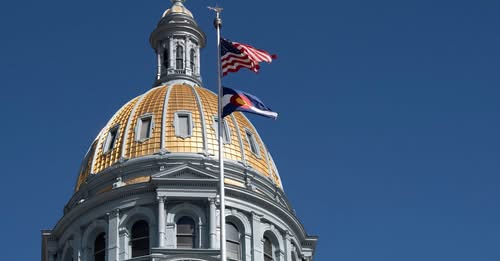
Elected leaders in Colorado are responding to President Donald Trump’s announcement of global tariffs on imports. While there is concern these tariffs could hurt Coloradans, one expert said there is a chance they could benefit certain industries.
“Clearly this is a very evolving time and a very dynamic time,” said Kishore Kulkarni, Distinguished Professor of Economics at Metropolitan State University.
More than 60 countries are now being targeted with tariffs on imports. A baseline of 10% will be imposed on foreign imports, while some countries may have even steeper tariffs. Trump’s plan calls for reciprocal tariffs to be imposed on 90 countries that have existing high tariffs imposed on U.S. goods.
“One of the good things that we learned is that there’s not going to be a 25% tariff like we were thinking about before, on all countries,” said Kulkarni. “Maybe the rest of the world will now say, ‘This is a good chance to lower the talent for American goods, because if they do that, then we will do that too. That’s the reciprocal tariff.”
In a statement from Sen. John Hickenlooper, a Democrat representing Colorado in the nation’s capitol, he said these tariffs will, “Cost us jobs and make everyday life more expensive for working families.”
The U.S. Global Leadership Coalition states that more than 820,000 jobs in Colorado are a product of international engagement.
“I think everything depends upon how other countries are going to respond to this policy action now,” said Kulkarni.
Kulkarni does think it’s possible for Colorado companies to thrive and for more jobs to be created in certain industries if they do not heavily rely on imports from other countries.
“Probably, in the long run there is an opportunity to create more jobs in the long run if the domestic producers really reinvest,” said Kulkarni. “Think our oil industry would be good.”
The downside, however, could be if other countries push back with higher tariffs of their own.
“Then we increase our tariff and then the game continues further,” said Kulkarni.
